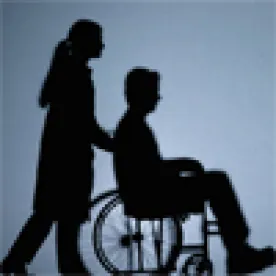On June 9, 2020 the Health and Human Services Office for Civil Rights (OCR) announced it had reached an Early Case Resolution (ECR) with the State of Connecticut and a separate ECR with Hartford Hospital. Both ECRs involve the rights of patients with disabilities to have reasonable access to support persons in hospital settings during COVID-19. OCR had received complaints that the COVID-19 hospital visitor policies of the State and the hospital violated the Americans with Disabilities Act (ADA) by failing to make exceptions for patients needing support persons for their care.
The complaints against the State of Connecticut alleged that the state’s guidance on pandemic related hospital “no visitor” policies allowed only narrow exceptions for support persons for patients with disabilities receiving certain services from the state Department of Developmental Services (DDS), causing groups of patients with disabilities to be unable to receive an exception. The allegations claimed that, because of the guidance, certain patients with disabilities were “denied equal access to medical treatment, effective communication, the ability to make informed decisions and provide consent, and that they were being unnecessarily subjected to physical and pharmacological restraints.” The ECR resolving the allegations was reached by the State of Connecticut issuing an executive order that ensures patients with disabilities have reasonable access to support persons. The executive order requires hospitals and other acute care settings to permit the entrance of a designated support person for a patient with a disability and permits family members, service-providers or other individuals knowledgeable about the needs of the person with a disability to serve as a designated support person.
The complaint against the hospital alleged that it failed to make a modification to its “no visitor” policy for a 73-year old patient with aphasia and severe short-term memory loss, who is mostly non-verbal, thereby denying access to support persons able to help with communication and comprehension during care. Because the patient did not receive any services from DDS, the patient did not qualify for an exception to allow a visitor. The ECR was reached with OCR mediating an agreement between the hospital and complainants that granted the patient access to a designated in-person support person. Due to the hospital’s responsive actions, OCR closed the complaint as satisfactorily resolved.
These ECRs and the executive order undoubtedly will be of interest to hospitals and other acute care facilities regarding the admittance of designated support persons for patients with disabilities.
This post was co-authored by Michael Lisitano, legal intern at Robinson+Cole. Michael is not yet admitted to practice law.



 />i
/>i

